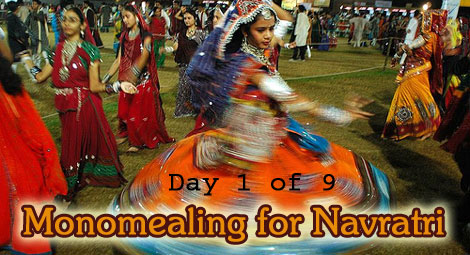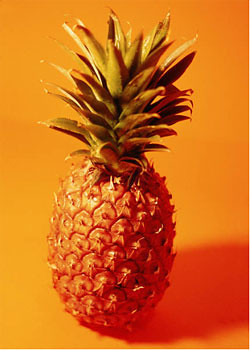 After our Oklahoma stop, we had back-to-back visits with family. During our 40-day tour, we had a great time at every place we stayed. There's something extra special about being with family, however. KDcat especially loved this part of the trip, where she could stay up late and sleep in every morning.
After our Oklahoma stop, we had back-to-back visits with family. During our 40-day tour, we had a great time at every place we stayed. There's something extra special about being with family, however. KDcat especially loved this part of the trip, where she could stay up late and sleep in every morning.
Our first stop was St. Louis, Missouri, to see Grandma and Grandpa Dee, and Aunt Jeanne. We did some shopping at Whole Foods, bought lots of organic produce, and prepared some raw dishes to share with everyone. We purchased a young coconut and KDcat used Grandpa's hatchet to show everyone how to open a young coconut. Jim's mother learned to make raw hummus, without chickpeas, and even agreed to be a guest chef for a Makin' It Monday raw food recipe video! So, we'll be sharing that with all of you in the near future! Aunt Jeanne loved the hummus, as well as the raw tacos we created. She seems to have a liking for raw foods, so who knows...you may be seeing another Dee online sharing info about raw foods in the future ! Grandpa is always a fan of apple pies, so he thoroughly enjoyed the pie we created during our visit. Grandpa and KDcat also spent some time talking about music, a passion for both of them.
Our second stop was Geneseo, Illinois, to visit with Aunt Cindy, Uncle Ray (who had to work during our visit), and cousin Destiny. KDcat and Destiny don't see each other very often, so this was a real treat. Destiny's a sweet girl who became a vegetarian over a year ago (she's the only vegetarian in her home)! That's a huge thing to do when you're just a young teenager and we're proud of her for taking her health into her own hands (and for saving the animals!). We took a lot of pictures while visiting. In the photoset, you'll see that somehow a monkey crawled onto KDcat's back and hung around with her most of one day (in which she was dressed up in quite the outfit!). That monkey found its way into all kinds of interesting places (in a park, playing on the slide, swing, etc., and even in the house playing the piano -- and I caught him trying to steal some of my bananas!). The weather was beautiful during our visit, so we spent a lot of time outside, walking and enjoying the beautiful time together. At this stop we created a raw apple crumble, which Aunt Cindy later modified with blueberries. We're gently nudging her to make a video of the recipe she created, so we can all see how it's made! It sounded delicious.
Read more: Family Visits During Our 40-Day Tour: St. Louis, MO, and Geneseo, IL

To continue with our Summertime Raw series, we took a trip to Pittsburgh's Frick Park to enjoy the beautiful day. Before leaving, we packed another meal to show you how easy it can be to eat a raw food diet while away from home.Frick Park was wildly popular among dogs; we saw canines of all shapes and sizes -- all playful, yet calm in comparison to our lovely Julia, a rescued blue Doberman. Joogie enjoyed the outing very much because she was able to snack on cucumbers (a favorite treat), chase after a few joggers (we're teaching her that this isn't proper doggy behavior), knock the cooler out of Jim's hands when we were leaving (which broke a few of our best glass dishes), and lick the faces of a few new furry friends. We've been to many parks, but we have a feeling this is now Julia's favorite. ?
In yesterday's blog and video post, we showed you how easy it is to simply grab fresh fruits and veggies and head out the door for an outing. In that show, no refrigeration or preparation was necessary. However, we also know that many of you are new to raw foods, and perhaps eating simple chopped produce isn't so appealing for you compared to traditional foods you'd normally eat while in a park. So, today's goal is to demonstrate how simple it can be, making it easy for you to stick to a raw food lifestyle and not feel tempted by the cooked foods that may be around while you're out enjoying the summer with friends and family. So, today's video is about stepping it up to the next level.

Here at Pure Jeevan we are preparing for our cross country tour to educate others about raw foods. This means we are paring down on a lot of things, donating a lot, selling some things, and pretty much not buying anything unless it's absolutely necessary. That's what we've been doing for almost two years now (we're waiting for the house to sell). Recently, however, I decided it was time to spend a little bit of money even if it wasn't absolutely necessary.
-

- Wendi's Dish Set
What did we buy? Dishes! Seems a bit strange to finally spend some money on something unnecessary and have it be dishes, right? Well, I had a few reasons for this purchase. The first is that when we are living in the RV, the space is going to be minimal. There won't be a lot of room for dishes, let alone much of anything else. Since there's not a lot of space to have dishes drying, we'll need to be washing, drying, and putting away immediately after use. That may not sound like a big deal, but when someone in the family decides to eat a few different things and leave the dirty dishes in the tiny RV sink, on the small counter, or somewhere else, it's going to really seem like a bigger mess than it is. So, to remedy this I thought it would be good for each of us to have our own dishes. That way we have a sense of responsibility for our own particular dishes--we know they are ours and we are responsible for taking care of them.
[Sorry, we lost the pic in a web update... will repost if we find it!]
Last night, Jim ate the first warm food he's had in over a year! I created a dinner that was placed in the dehydrator for about an hour before it was served. This dish is delicious at room temperature, also, but I thought it might be more special if I served it a bit warm. Jim thought it was a nice change to the colder temperatures of the smoothies he's been practically living on!
Here's the recipe, if you think you'd like to try it.

Jim here with another installment of Weird Wednesday...
Throughout the year, I go through various phases of fruit preferences. Right now, it's citrus. I eat probably four large grapefruits per day (dark reds). The darker the red the better, IMHO. I can get quite disappointed when the grapefruits are listed as "ruby red" but turn out to be just regular pink ones. I've noticed that the ones I like the most have an orangish tint to them, as though they've been left to ripen on the bush a little too long. Also, the best ones I've had this year have been from Texas. So, find yourself some burnt-looking Texan grapefruits & enjoy the blood-red bitter-sweetness!
Read more: If Oranges Smell So Darned Good to You... Buy Some!

Today we welcome an up-and-coming raw chef, Sam, from DebbieDoesRaw for the first of Pure Jeevan's new Makin' It Monday "Guest Raw Chef" editions. Sam will demonstrate how to make a simple Peach Pudding, which she tells us is the invention of her very good friend Anthony from Rawmodel.com. We think Sam did a super job! Don't you ! Sam, you're welcome to guest-host on our blog any time you like.
Read more: Makin' It Monday "Guest Raw Chef" Edition Welcomes Sam!

Happy Navratri!
DAY 1:

Want to have a little bit of fun today here on the blog? We'd love to hear your list of favorite foods for each color of the rainbow! I wonder how many of us will have similar fruits and vegetables on our lists, and how many of us will come up with vegetables and fruits that others have overlooked?

Welcome to Makin' It Monday, Guest Raw Chef edition. Today, Dave Sokulski of www.BirchCenter.com and www.FoodUnderFoot.com gets a little silly while making some delicious raw cacao treats! Enjoy the video:
Eating only mono meals is going pretty well. I'm on my third food, so far, and have ended day two. This evening I've started my third fruit: Pineapples!


We may never fully comprehend the mysteries of life and death. One thing is for certain, however, with both we experience tremendous amounts of emotion.
At this moment, we are experiencing extreme sorrow after the still birth of our niece, Elizabeth Marie. She was named after my mother who died a few years ago. During this period of tremendous grief, we will be spending time with my dear sister and her family, offering our love and support.
